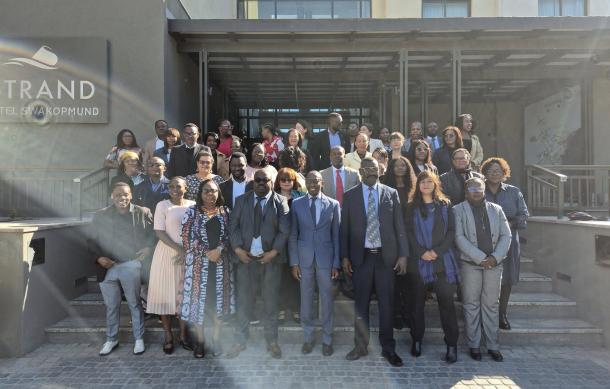
Stakeholders have agreed to set up an integrated Gender-Based Violence Information Management System for Namibia by March 2027.
The stakeholders from the government, private and civil sectors made the decision at a high-level meeting at Swakopmund.
"We realise that we have a lot of fragmented information. We identified who has what data and who has what system, because there are many systems that are in place. The Office of the Prime Minister was also here, which is also very crucial; they have a system which can pool all this data together," said Statistician General Alex Shimuafeni.
The stakeholders agreed that a fragmented data system makes it difficult for them to develop policies that respond to gender-based violence with accuracy.
Erika Goldson, the Country Representative of the UNFPA, said, "It will help to give us a picture of what truly is the problem on the ground in Namibia and will be able to guide the interventions or policies that will be developed."
Lt. Gen. Joseph Shikongo added how such a system will make the work of the police easier.
"When we want information, you can just press the button, and then all of us in the whole government will have the information regarding the statistics; however, we have taken note of the security of that information and the confidentiality."
In eleven months, the police reported over 4,400 cases, of which 1,000 were rape cases.
Among the challenges raised by the police at the meeting was a shortage of officers for GBV protective units and training for those assigned to the cases.
"And the other issue is, again, the technical aspect, such as the connectivity. Because you recall that Nampol has got gender units in all 14 regions, but unfortunately, these gender units deployed in the regions all have no capacity, more particularly tools; they are not all equipped with technical aspects like the network or the internet."
Among the outcomes of the meeting, said Dr. Isak Neema, Executive Data Quality Assurance at the NSA, is the need to set up committees that will work towards the implementation of an integrated data system by March 2027.
"We are going to start now operationalising this initiative, starting with the creation of operational frameworks and setting up committees, both technical committees and high-level committees, inter-agency, and then go toward creating the terms of reference and drafting the road map as well as other operational mechanisms."
The meeting identified the Ministry of Gender and Child Welfare to lead the coordination of the project, while the Prime Minister's Office will use its system to integrate all GBV statistics in a national database.





